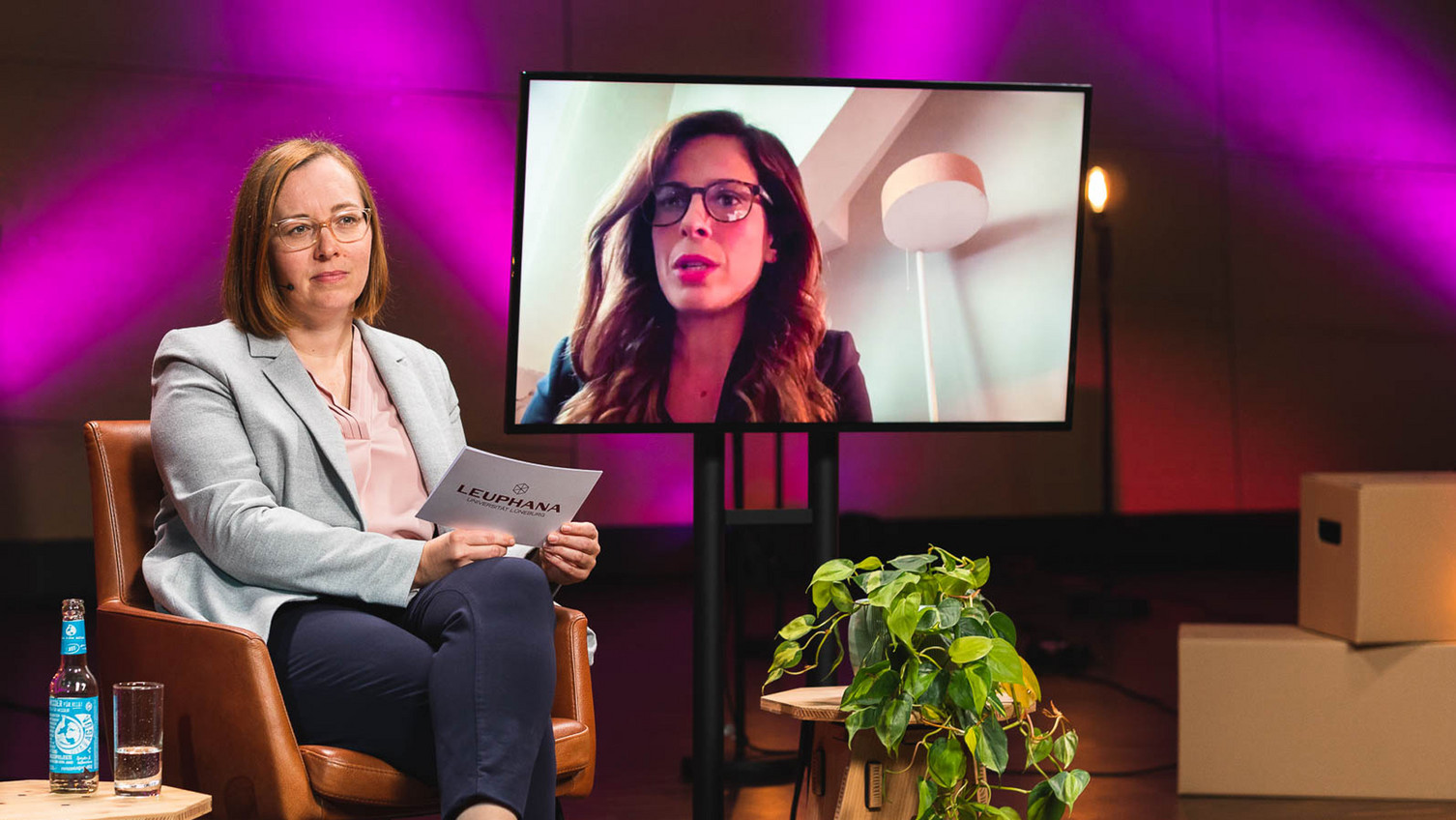Opening Week 2021: Francesca Bria – "We need a Digital New Deal"
2021-10-12 This year's opening week invites the 1400 first-year students to explore the global society of tomorrow under the theme "New Deal". For the first keynote, Francesca Bria, an expert in digital strategies and information policy, was guest via livestream. Using buzzwords such as 'Big Democracy' and 'Digital Sovereignty', she provided food for thought for a "Digital New Deal".
The Corona pandemic has intensified multiple crises and presented society with numerous challenges. Particularly in the context of digitization, home schooling, digital teaching and mobile working have led to a comprehensive transformation of the status quo. "Post-pandemic times are perfect to talk about the urge for a New Deal. Crisis can feed imagination," says digital expert Francesca Bria. Her vision of a New Deal is a constructive and positive view of a digital future - she argues for a new social contract that puts people first.
Currently, however, the reality still looks different: The digital infrastructure is in the hands of a few large IT companies that have a data monopoly and - largely without being regulated - profit from this data. The companies in question come primarily from the so-called "big states" of the USA and China, ensuring their supremacy as digital innovators. Francesca Bria therefore calls for stronger regulations and the regulation of the digital market, for example through taxes. "The challenge for Europe is not just to regulate, to be dependent on the Big States, but to actively take part in our digital future", says Bria.
Francesca Bria describes the vision of an alternative digital future as "Big Democracy". In this democracy, the state is responsible for protecting personal data as a fundamental right of citizens. To ensure this, the data must be given back to the people: "We have to give back the value and the data back to society, to the people that create value in the first place," says Bria. For Europe to achieve digital sovereignty, a complex realignment of industrial and economic strategy is necessary.
Francesca Bria understands digital sovereignty as "the right of society to set the direction of the digital progress for the people and the environment." Citizens should be able to decide for themselves what happens to their data - what data they want to disclose and with whom they share it. Based on democratic ideals, the guiding principles of "data democracy," as Francesca Bria calls it, are transparency and participation: "The citizens should be in control of their data. They should be able to participate."
Education also plays an important role in achieving digital sovereignty: "We need an interdisciplinary approach to understand the implications of technology. Not only is it important to teach how to code, but just as important to have critical thinking." In this country, critical awareness of the handling and protection of personal data is already widespread. Germany could therefore play a pioneering role in sustainable and democratic digitization, as Bria emphasizes. In conclusion, she appeals, "We have to put people first and use technology to serve a greater good!"
In the next few days, other exciting guests will be featured at the launch week. Among them are Claudia Kemfert, Honorary Professor at Leuphana and Head of Energy, Transport and Environment at the German Institute for Economic Research; Helmut Walser Smith, US-American historian; Grace Blakely, English economic and political consultant and Konstantin Kuhle, Member of the Bundestag and spokesman for domestic policy of the FDP parliamentary group.

